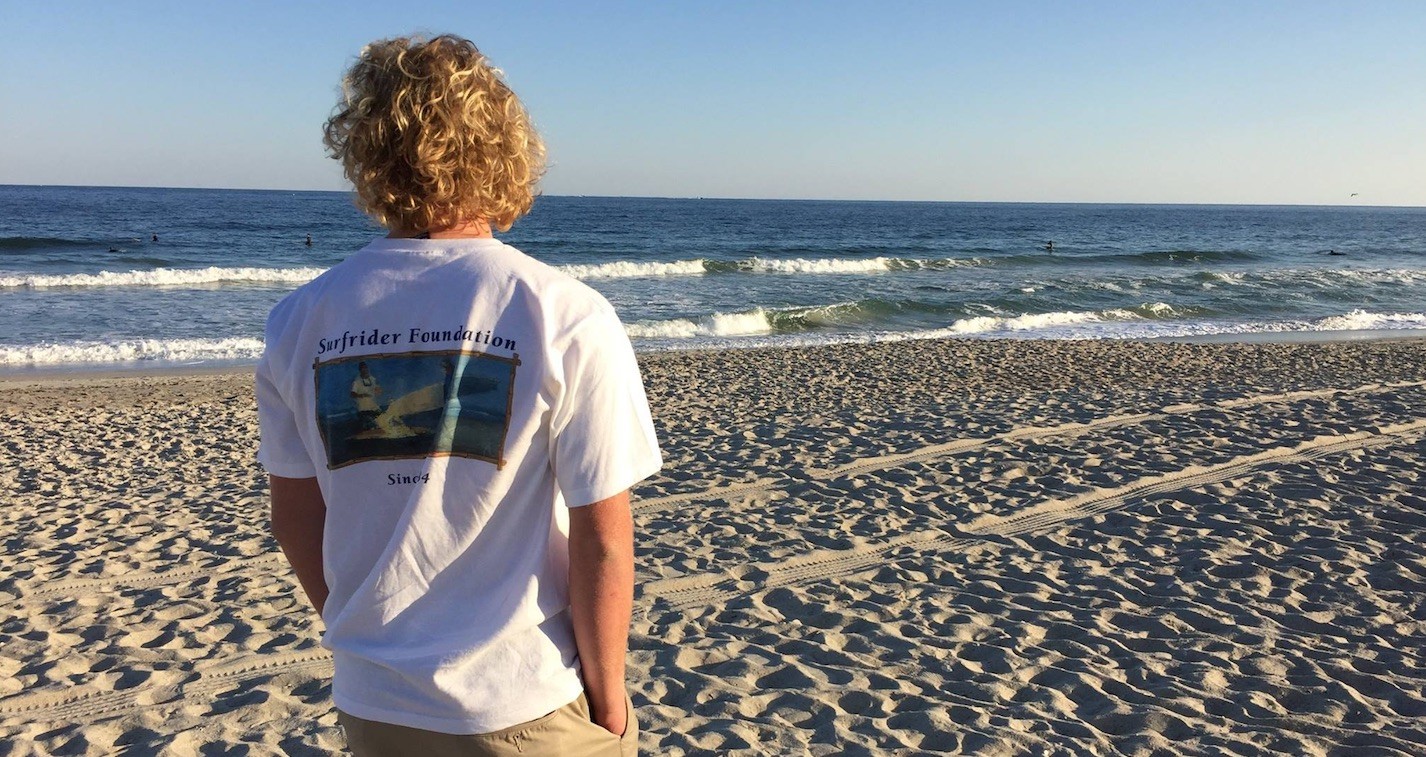
08.29.17
Activist Spotlight: Miles Abernathy with the UNC Wilmington Youth Club
By Surfrider FoundationMeet Miles Abernathy, volunteer extraordinaire wih the Surfrider Club at the University of North Carolina Wilmington!

Q: Why and when did you get involved with the Surfrider Foundation?
I first got involved with the Surfrider Foundation through my local community college in 2014. Like any college student, as I was unsure on where life was going at that point in time, I wanted to get involved with like-minded people. Currently, I’m a senior at UNC-Wilmington majoring in Environmental Science and pursuing my interest in sustainable building practices. My involvement has assured me that while surfing is a passion, so is keeping our water and surroundings free of harmful pollutants. As I surf and get involved as much as possible, I continue to see many familiar faces that I had initially only seen in the water.
Q: What are some local issues that are affecting your ocean, waves and beaches?
Wilmington, NC, and the surrounding beaches are like most coastal places in the United States. There are many environmental issues we deal with on a constant basis. Water quality is among the highest of concerns because of the hundreds of hog farms upstream along the local river. The Cape Fear River has long been known for its many industries that have made their home along the banks. There are over 20 coal-fired power plants, some of which have changed over to natural gas. While some of these have switched, the impact is still great whenever high water is present. The introduction of high levels of metals such as mercury, arsenic, and boron are found within coal ash ponds. Upstream of us, levels of arsenic have been found up to 44 times the legal standard of drinking water.
In 2010, approximately 10 tons of coal ash spilled from the Sutton Lake electric plant only a few miles away from local estuaries and the Cape Fear River basin. Although this plant was converted to natural gas, the issue of containing this problem still remains unanswered. Another huge problem in the upcoming year is our fight against offshore drilling and the problems associated with crude oil.
Q: What Surfrider projects have you worked on?
This past spring, the UNCW Surfrider club constructed an Ocean Friendly Garden on campus. Significant help came from the Eco and Sustainability Club, along with assistance from faculty. This was a great project to get a big group of people to see first-hand the function of a rain garden and the positive effects it has on controlling runoff and trapping pollutants. Along with this, we’ve done weekly beach cleanups, dune restoration and sea oat plantings. This year, we hope to raise awareness on campus with the student population at UNCW about the importance of defending against offshore drilling. We also hope to promote alternative energy and things we can do to help mitigate our dependence on fossil fuels.
Q: What has been the highlight of your Surfrider experience (i.e., campaign, program, victory)?
I think my favorite event since becoming a member was hosting a fundraiser for my community college that included live music, food, and a silent auction. Abby Perry, the Ocean Friendly Gardens coordinator with the Cape Fear Chapter, who first got me engaged in Surfrider, helped with organizing and setting up a school fund, which helped pay for canteens and tabling goods necessary for future events. Being a Surfrider coastal defender would not be possible without constant reminders of environmental problems, great surf sessions, and water quality problems we face every day on the East Coast.
Q: What is the most important thing you tell others about Surfrider?
The most important thing I tell others about Surfrider is to leave the beach cleaner than you found it, which is a reminder to anyone traveling on and off the beach.

Want to get involved? Find your nearest chapter at Surfrider.org/chapters or support our coastal defenders at Surfrider.org/support-surfrider!